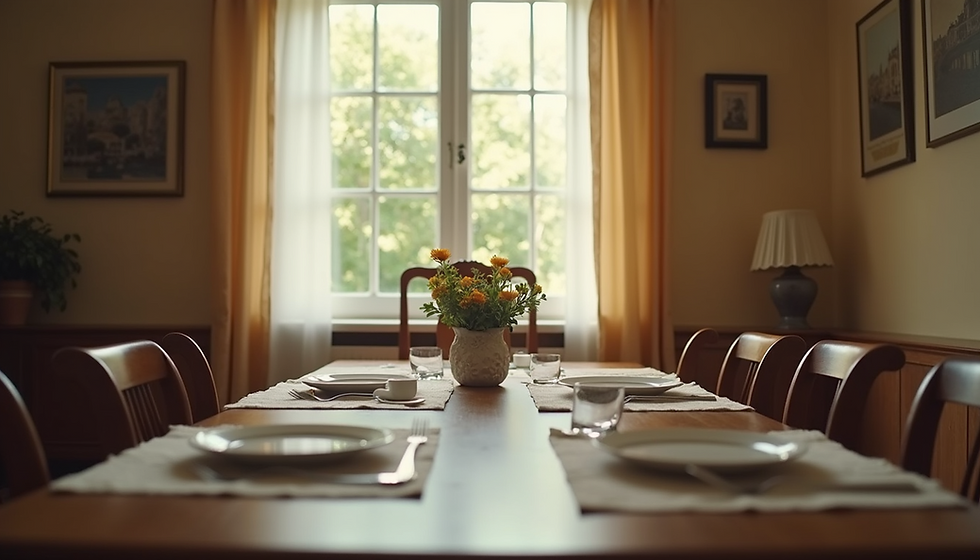Connecting Hearts: How to Bridge the Gap in Your Bedroom
- andradudgeon
- Sep 2, 2024
- 3 min read
If you or your partner are having trouble rekindling the connection you once shared in the bedroom, rest assured that you are not alone. Many men and women experience phases in life where sex is not their top priority. Rather than pointing fingers at yourself or your partner, or making hasty assumptions, let's take a step back and start afresh.

One of the main factors that can cause struggles in the bedroom is not being able to have an open, honest, respectful and intimate conversation with your partner about sex. The shameful rhetoric around sex is fading out and being replaced by open and truthful conversations about sex! Instead of just trying to spice up your dating life to try and bring passion back to your love life rather, you may need to step back to really see the whole picture. There can be deeper reasons why you or your partner are struggling in the bedroom that are only discovered through meaningful conversation.
There are several reasons why relationships become sexless. As partners, we need to understand that there are several stressors in life that cannot be solved in the bedroom like…
Unexpected loss or unresolved grief. Throughout life, we encounter various forms of grief, such as the loss of a child, job, financial security, or a cherished dream. These losses can lead to a state of prolonged mourning, complicating an individual's daily life.
Feeling unheard and underappreciated. To be intimate with someone means that you feel emotionally understood by them. When one partner begins to feel undervalued or underappreciated, this can lead to disconnection over time.
Resentment. All couples have disagreements, but those who cannot resolve their differences and engage in constructive arguments may harbor unresolved anger towards each other, which can accumulate over time.
Another factor that might contribute to a diminished sex drive is the nature of your sexual desires. It's not unusual for life's stressors and changes, often unnoticed, to affect sexual desire in long-term relationships.
For instance, you and your current husband began as college friends, which evolved into a romantic relationship. The thrill of late-night dates, sneaking in quick makeout sessions between classes, and minimal life stressors made your intimate life exciting and fresh. Five years on, you're married with two children, juggling stressful jobs, and managing financial pressures.
In Emily Nagoski’s book Come As You Are, she talks about how all of us are programmed with an internal “gas” and “brake” pedal system that controls our sexual drive. When we experience a stressor like an unwanted pregnancy or feeling concerned about your reputation, our internal brake system is telling us to “turn it off”. When we experience a sex-related stimuli like something you see, smell, taste, hear or imagine, it tells our internal gas pedal to ‘turn on”
To figure out what your brakes and gas pedal are, try to imagine your best sexual experiences, write down what happened, what turned you on, and what didn't. Examine the 2-3 experiences you wrote down and find the similarities. You may find that a certain cologne your husband used, or the context of which you were intimate might be the secret code to turn you on.
In order to find what is affecting your sex life, it's essential that you and your partner have a deep, meaningful conversation about your feelings about sex. Having an open, honest and respectful conversation about your sex life, talking about any issues that may be getting in the way can bring two people closer together. Being vulnerable talking about sex can give partners a better and deeper understanding of each other and their biggest desires.
Although your first idea on how to fix your sex life might be to add sex toys, or roleplaying, it takes a lot more than some handcuffs to help fix a lost emotional connection. What really powers sexual desire is an emotional bond, trust, an appreciation for each other, and most importantly a calm mind.
If you and your partner are struggling with your sex life, seeking a couples therapist is a great first step. Contact us at info@georgetowncouplestherapy.com or 416 949 9878 to learn more.



Comments